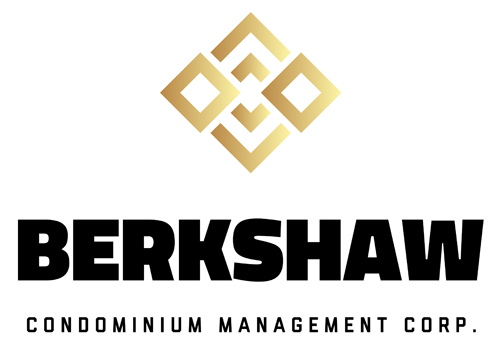BOARD MEMBER DUTIES AND RESPONSIBILITIES
 Following are some of the most common positions held by condominium Board members. Please note that not all positions exist on all Boards, and Board members may hold more than one position.
Following are some of the most common positions held by condominium Board members. Please note that not all positions exist on all Boards, and Board members may hold more than one position.
President:
The president facilitates and chairs the board meetings as well as the AGM. The president establishes the Board meeting agenda, and acts as the liaison for the Board to the Bershaw condominium manager. The president works closely with the condo manager to ensure compliance with the bylaws and the Condominium Property Act of Alberta.
Vice-President:
The vice-president has the responsibility of assisting the president in his or her duties as the VP does not has specific tasks and in the absence of the president the vice president shall assume the role and perform the duties. This is a critical supportive role.
Treasurer:
The member responsible for monitoring the expenses, reviewing and overseeing monthly financial statements provided by Berkshaw Condominium Management Corp. and reporting the information to the Board. The treasurer is responsible for reviewing the annual audits and communicating the findings with the board.
Secretary:
The secretary is responsible for managing and dictating the minutes at board meetings, maintaining the records of board meetings, handle the correspondence for the corporation and carrying out the secretary’s duties under the direction of the president and board by distributing copies to Board members and the condominium manager in a timely fashion.
In addition to these positions, some boards may establish committees to get things done. These committees can be made up of some board members or unelected owners who have an interest in a particular aspect of the condominium. Working on a committee is a good way for unit owners to become involved in their condominium and see if being a board member is right for them.
Unless the bylaws say otherwise, condo boards are free to establish committees to get things done. But boards should always make sure that all major decisions are still made by the entire board. No individual board member can make decisions by him or herself. The committee’s responsibilities may include:
Grounds/Building: Oversee the cleanliness of the building, landscaping, maintenance and meeting with contractors. The Berkshaw condominium manager will offer support in these areas. This committee will also be asked to investigate and report to the Board any requests by the owners to make changes or additions to the exterior of their units and privacy area.
Parking: Monitor the common parking areas and visitor parking. This person may also elect to contact the parking authorities if a vehicle needs to be tagged or towed.
Pets: Monitors pet activity. Owners are expected to pick up after their pets, not allow them to disturb other residents and register their pets, if required by the Board.
New Developments: In a newly constructed condominiums, the Board of Directors is responsible for communicating all common area deficiencies directly to the developer.
Owner Communications: Ensures all owners are informed regarding the corporation’s business. Examples include: pets, parking, upcoming events, fire safety, and so forth. The newsletters, emails or postings also initiate two-way communication by providing information to the owners and asking for feedback in return.
Role of the Board of Directors
Boards are representatives of the owners. Board members are usually elected each year by the unit owners. Anyone who owns a unit is generally eligible to run for a position on the board of directors. At least 2/3 of board members must be unit owners or mortgagees. As an entity, they are responsible for making all major decisions regarding the maintenance of buildings, common property, condo finances, and must uphold and enforce the Condominium Property Act, the declaration, by-laws, and enforce the rules.
Boards of directors hold a mandate to plan, consult and oversee the fiscal health of the corporation and are responsible for hiring incumbents to carry out the tasks associated with their duties and day-to-day operations of the property.
As a Board member, you hold the responsibility of representing and administrating the tasks and decisions based on the needs of your condominium association, you act on behalf of your fellow owners. To be effective in this role, you must be aware of the daily operations and tasks involved, as well as the legal responsibility that must be complied with. Partnering with an experienced and competent management firm like Berkshaw Condominium Management Corp. enables the Board to have a dependable, reliable and informed resource to assist in the daily efforts in representing the best interests of the ownership that the board is responsible for.
Boards must ensure that the owners, staff, and visitors are humanely treated, safe, qualified, and accountable and have their concerns met that the management company collects all fees from owners in a timely fashion; that invoices are paid, proper records are kept, the budget is duly prepared, contracts are awarded after a tendering process, and adequate insurance is maintained. Reserve funds have to be sufficient, and annual general meetings carried out. Boards are also responsible for the reliability of status certificates.
Boards must address resident’s legitimate complaints, make sure that their needs and rights are respected, and that they can enjoy their units peacefully, as per the Act. Boards are also responsible for communicating with residents, and particularly owners, so that owners are informed and feel empowered.
Communicates with owners and residents on a regular basis, explains its decisions, openly discusses problems and victories, has a policy of transparency and truthfulness. Postings on bulletin boards accessible to all residents are key in this respect. Information meetings may take place occasionally.
Follows and enforces condo rules consistently and for everyone: Board members have to follow rules themselves if they expect others to follow them and should not show favouritism. Board members must be fair and impartial with no axe to grind or a vested interest or a personal agenda.
Our manager councils the Board in exercising due diligence regarding contracts for repairs, maintenance, and staffing. Our team helps the Board seek tenders from sub-contractors on the vendor list for the designated board. When maintenance problems arise, a the board not only seeks advice from non-interested parties and avoid conflicts of interest, but also asks if there is a better and less expensive or better solution than the one can suggest by contractors. Always respects a condo’s finances, assets, and owners’ monies. Makes certain that the premises are well maintained and, that the staff is competent and acts in the best interest of the community as a whole.
Condominium Corporation meetings:
Meetings are held to conduct the business of the corporation and the Board of Directors are the representatives of the owners who are in attendance. The agenda is prepared in advance by the president and distributed to all members. The agenda shall allocate scheduled time blocks for each topic discussed. In addition, any financial and other reports from Board members should also be circulated in advance for review prior to the meeting.
Board members must be aware that Board of Directors meetings are formal business meetings. All participants should be respectful of one another and should arrive on time, be fully prepared to discuss and make decisions about all topics on the agenda. It is important to follow the agenda and not become distracted discussing other matters as Board members are volunteers who often have busy schedules. By making these meetings welcoming, interactive, and collective this will encourage members to participate if their time is used effectively. Therefore, meetings should last 1-1.5 hours (2 hours maximum).

